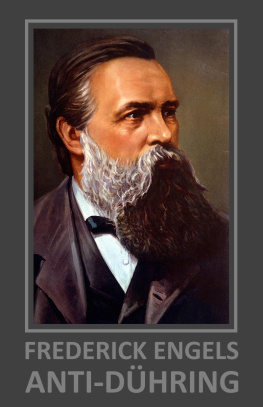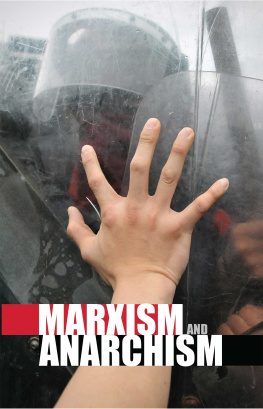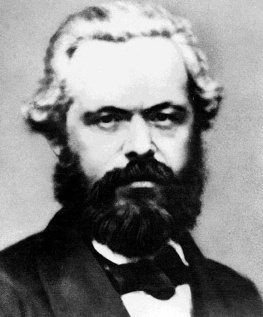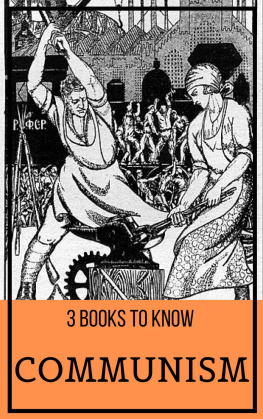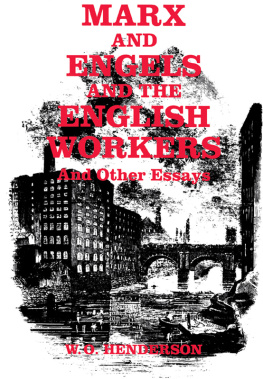Frederick Engels - The Principles of Communism
Here you can read online Frederick Engels - The Principles of Communism full text of the book (entire story) in english for free. Download pdf and epub, get meaning, cover and reviews about this ebook. year: 1914, genre: Politics. Description of the work, (preface) as well as reviews are available. Best literature library LitArk.com created for fans of good reading and offers a wide selection of genres:
Romance novel
Science fiction
Adventure
Detective
Science
History
Home and family
Prose
Art
Politics
Computer
Non-fiction
Religion
Business
Children
Humor
Choose a favorite category and find really read worthwhile books. Enjoy immersion in the world of imagination, feel the emotions of the characters or learn something new for yourself, make an fascinating discovery.

- Book:The Principles of Communism
- Author:
- Genre:
- Year:1914
- Rating:4 / 5
- Favourites:Add to favourites
- Your mark:
- 80
- 1
- 2
- 3
- 4
- 5
The Principles of Communism: summary, description and annotation
We offer to read an annotation, description, summary or preface (depends on what the author of the book "The Principles of Communism" wrote himself). If you haven't found the necessary information about the book — write in the comments, we will try to find it.
The Principles of Communism — read online for free the complete book (whole text) full work
Below is the text of the book, divided by pages. System saving the place of the last page read, allows you to conveniently read the book "The Principles of Communism" online for free, without having to search again every time where you left off. Put a bookmark, and you can go to the page where you finished reading at any time.
Font size:
Interval:
Bookmark:
Frederick Engels
1914

The first page of the manuscript
Communism is the doctrine of the conditions of the liberation of the proletariat.
The proletariat is that class in society which lives entirely from the sale of its labor and does not draw profit from any kind of capital; whose weal and woe, whose life and death, whose sole existence depends on the demand for labor hence, on the changing state of business, on the vagaries of unbridled competition. The proletariat, or the class of proletarians, is, in a word, the working class of the 19th century.
In their works written in later periods, Marx and Engels substituted the more accurate concepts of sale of labor power, value of labor power and price of labor power (first introduced by Marx) for sale of labor, value of labor and price of labor, as used here.
No. There have always been poor and working classes; and the working class have mostly been poor. But there have not always been workers and poor people living under conditions as they are today; in other words, there have not always been proletarians, any more than there has always been free unbridled competitions.
The Proletariat originated in the industrial revolution, which took place in England in the last half of the last (18th) century, and which has since then been repeated in all the civilized countries of the world.
This industrial revolution was precipitated by the discovery of the steam engine, various spinning machines, the mechanical loom, and a whole series of other mechanical devices. These machines, which were very expensive and hence could be bought only by big capitalists, altered the whole mode of production and displaced the former workers, because the machines turned out cheaper and better commodities than the workers could produce with their inefficient spinning wheels and handlooms. The machines delivered industry wholly into the hands of the big capitalists and rendered entirely worthless the meagre property of the workers (tools, looms, etc.). The result was that the capitalists soon had everything in their hands and nothing remained to the workers. This marked the introduction of the factory system into the textile industry.
Once the impulse to the introduction of machinery and the factory system had been given, this system spread quickly to all other branches of industry, especially cloth- and book-printing, pottery, and the metal industries.
Labor was more and more divided among the individual workers so that the worker who previously had done a complete piece of work now did only a part of that piece. This division of labor made it possible to produce things faster and cheaper. It reduced the activity of the individual worker to simple, endlessly repeated mechanical motions which could be performed not only as well but much better by a machine. In this way, all these industries fell, one after another, under the dominance of steam, machinery, and the factory system, just as spinning and weaving had already done.
But at the same time, they also fell into the hands of big capitalists, and their workers were deprived of whatever independence remained to them. Gradually, not only genuine manufacture but also handicrafts came within the province of the factory system as big capitalists increasingly displaced the small master craftsmen by setting up huge workshops, which saved many expenses and permitted an elaborate division of labor.
This is how it has come about that in civilized countries at the present time nearly all kinds of labor are performed in factories and, in nearly all branches of work, handicrafts and manufacture have been superseded. This process has, to an ever greater degree, ruined the old middle class, especially the small handicraftsmen; it has entirely transformed the condition of the workers; and two new classes have been created which are gradually swallowing up all the others. These are:
The class of big capitalists, who, in all civilized countries, are already in almost exclusive possession of all the means of subsistance and of the instruments (machines, factories) and materials necessary for the production of the means of subsistence. This is the bourgeois class, or the bourgeoisie.
The class of the wholly propertyless, who are obliged to sell their labor to the bourgeoisie in order to get, in exchange, the means of subsistence for their support. This is called the class of proletarians, or the proletariat.
Labor is a commodity, like any other, and its price is therefore determined by exactly the same laws that apply to other commodities. In a regime of big industry or of free competition as we shall see, the two come to the same thing the price of a commodity is, on the average, always equal to its cost of production. Hence, the price of labor is also equal to the cost of production of labor.
But, the costs of production of labor consist of precisely the quantity of means of subsistence necessary to enable the worker to continue working, and to prevent the working class from dying out. The worker will therefore get no more for his labor than is necessary for this purpose; the price of labor, or the wage, will, in other words, be the lowest, the minimum, required for the maintenance of life.
However, since business is sometimes better and sometimes worse, it follows that the worker sometimes gets more and sometimes gets less for his commodities. But, again, just as the industrialist, on the average of good times and bad, gets no more and no less for his commodities than what they cost, similarly on the average the worker gets no more and no less than his minimum.
This economic law of wages operates the more strictly the greater the degree to which big industry has taken possession of all branches of production.
The working classes have always, according to the different stages of development of society, lived in different circumstances and had different relations to the owning and ruling classes.
In antiquity, the workers were the slaves of the owners, just as they still are in many backward countries and even in the southern part of the United States.
In the Middle Ages, they were the serfs of the land-owning nobility, as they still are in Hungary, Poland, and Russia. In the Middle Ages, and indeed right up to the industrial revolution, there were also journeymen in the cities who worked in the service of petty bourgeois masters. Gradually, as manufacture developed, these journeymen became manufacturing workers who were even then employed by larger capitalists.
The slave is sold once and for all; the proletarian must sell himself daily and hourly.
The individual slave, property of one master, is assured an existence, however miserable it may be, because of the masters interest. The individual proletarian, property as it were of the entire bourgeois class which buys his labor only when someone has need of it, has no secure existence. This existence is assured only to the class as a whole.
Font size:
Interval:
Bookmark:
Similar books «The Principles of Communism»
Look at similar books to The Principles of Communism. We have selected literature similar in name and meaning in the hope of providing readers with more options to find new, interesting, not yet read works.
Discussion, reviews of the book The Principles of Communism and just readers' own opinions. Leave your comments, write what you think about the work, its meaning or the main characters. Specify what exactly you liked and what you didn't like, and why you think so.




